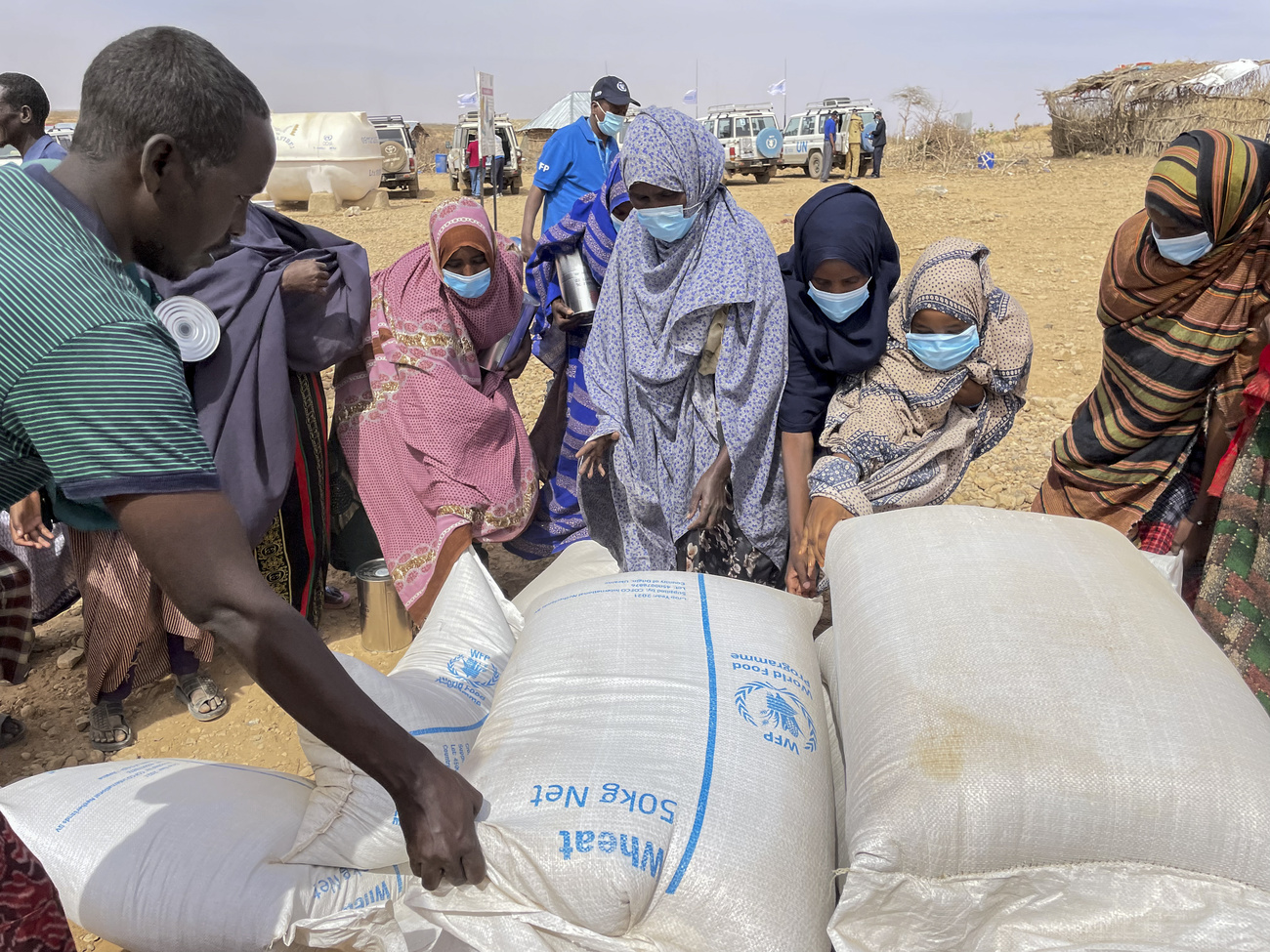
Food security not a given, says Swiss agriculture official

A top agriculture official says the risk of food shortages, while not currently pressing, is underestimated in wealthy Switzerland.
Switzerland, which imports 50% of its food, is still in good shape despite international food shortages and rising prices, the director of the Federal Office for Agriculture told newspapersExternal link in the Tamedia group on Wednesday.
However, the “comfortable position” is largely down to the country’s current purchasing power on global markets. “It’s not a given that the dinner table will always be so well-stocked in Switzerland”, Christian Hofer said. As an example he pointed to the Covid-19 pandemic, when supply chain difficulties led to basic products like flour going missing from supermarket shelves.

More
How the war in Ukraine is fuelling the next global food crisis
Hofer also said that climate change, and the growth of the population in Switzerland, made the task of food security more difficult in the future.
To boost self-sufficiency, he said that domestic food production should continue to be promoted, including for the cultivation of crops and vegetables to be eaten by humans; currently, 30% of Swiss agricultural land is used to grow crops, and 60% of these crops are then destined to be used as animal feed.
Hofer added that one-third of food in Switzerland continues to be wasted, and that fixing this, as well as shifting food habits and eating less, would in theory be able to bring the level of self-sufficiency to almost 100%.

In compliance with the JTI standards
More: SWI swissinfo.ch certified by the Journalism Trust Initiative































You can find an overview of ongoing debates with our journalists here . Please join us!
If you want to start a conversation about a topic raised in this article or want to report factual errors, email us at english@swissinfo.ch.